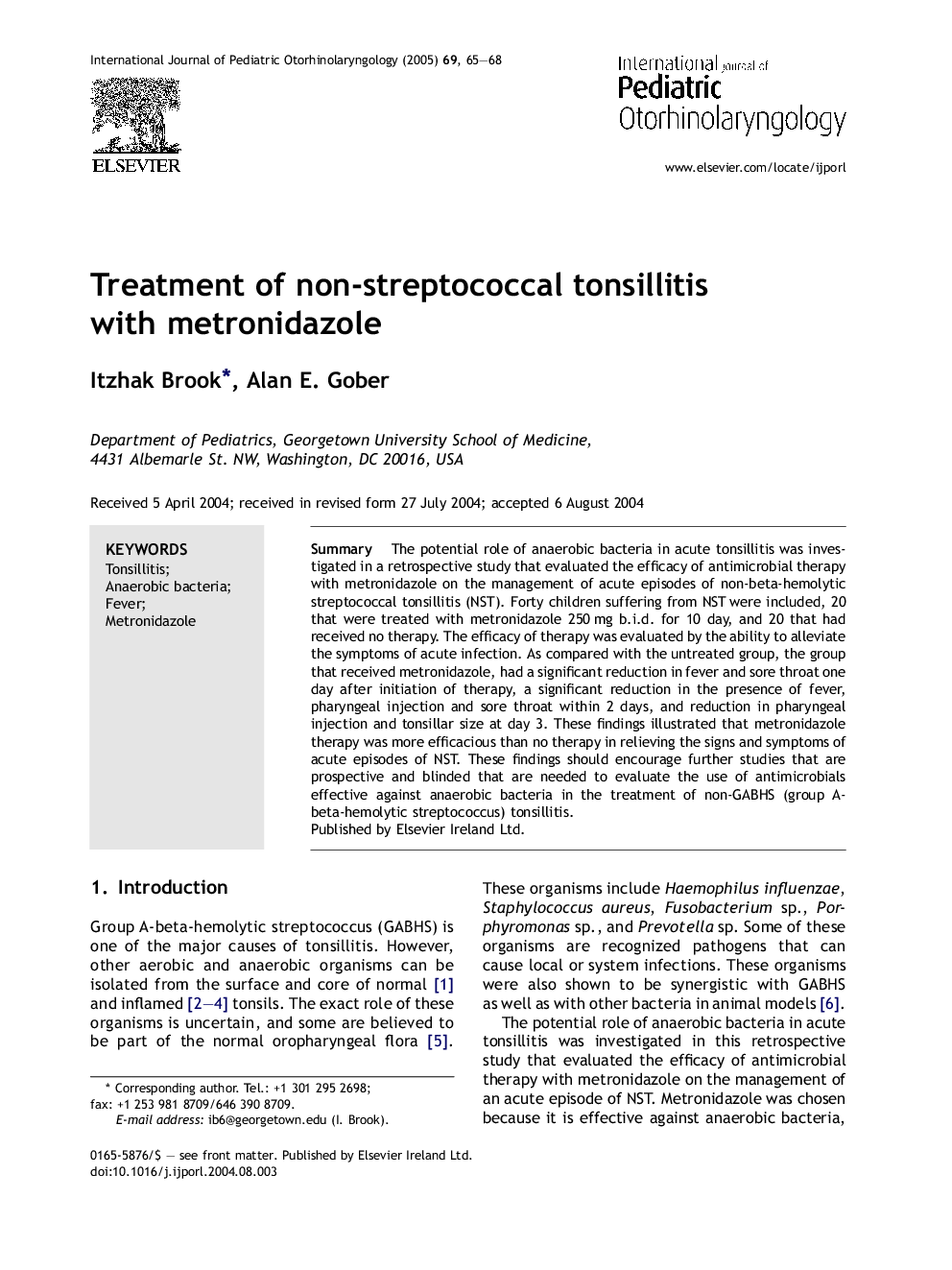| Article ID | Journal | Published Year | Pages | File Type |
|---|---|---|---|---|
| 10088794 | International Journal of Pediatric Otorhinolaryngology | 2005 | 4 Pages |
Abstract
The potential role of anaerobic bacteria in acute tonsillitis was investigated in a retrospective study that evaluated the efficacy of antimicrobial therapy with metronidazole on the management of acute episodes of non-beta-hemolytic streptococcal tonsillitis (NST). Forty children suffering from NST were included, 20 that were treated with metronidazole 250Â mg b.i.d. for 10 day, and 20 that had received no therapy. The efficacy of therapy was evaluated by the ability to alleviate the symptoms of acute infection. As compared with the untreated group, the group that received metronidazole, had a significant reduction in fever and sore throat one day after initiation of therapy, a significant reduction in the presence of fever, pharyngeal injection and sore throat within 2 days, and reduction in pharyngeal injection and tonsillar size at day 3. These findings illustrated that metronidazole therapy was more efficacious than no therapy in relieving the signs and symptoms of acute episodes of NST. These findings should encourage further studies that are prospective and blinded that are needed to evaluate the use of antimicrobials effective against anaerobic bacteria in the treatment of non-GABHS (group A-beta-hemolytic streptococcus) tonsillitis.
Related Topics
Health Sciences
Medicine and Dentistry
Otorhinolaryngology and Facial Plastic Surgery
Authors
Itzhak Brook, Alan E. Gober,
